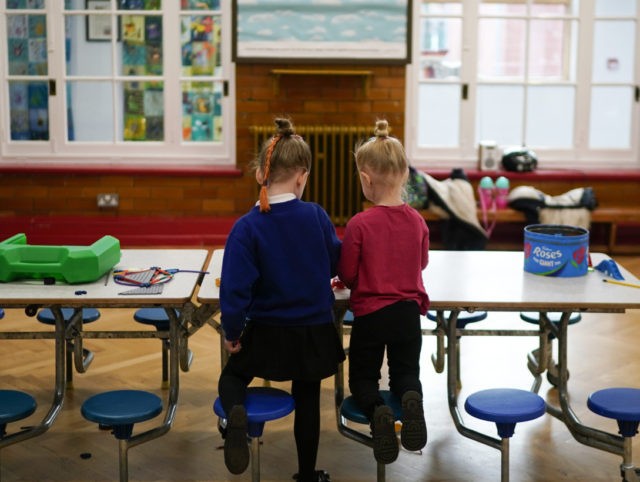The development of some young children ‘regressed’ during periods of COVID lockdown, according to a government report.
Children in the UK have faced ‘delayed’ development as a result of harsh COVID restrictions, while others even saw their development regress during periods of lockdown, a government report has found.
The findings match up with those from other studies conducted in other parts of the world, with one study in Germany finding that the reading ability of 4th graders had fallen significantly since before the Chinese Coronavirus pandemic.
According to the report by UK education ministry Ofsted, young children have been most affected by coronavirus restrictions, with their development being delayed and even regressing in a variety of ways.
“Today’s report finds that the pandemic has continued to affect young children’s communication and language development, with many providers noticing delays in speech and language,” the report reads. “Others said babies have struggled to respond to basic facial expressions, which may be due to reduced social interaction during the pandemic.”
“There continues to be an impact on children’s physical development, including delays in babies learning to crawl and walk,” the report continues. “Some providers reported that children had regressed in their independence and self-care skills.”
The report also notes that many children seemed to have suffered setbacks in their emotional development, with many lacking the confidence to properly engage in social or group activities.
More bizarre side effects of lockdowns have also appeared to have cropped up in Britain’s youth, with one nursery reportedly claiming that some children were gaining the accents of the cartoon characters they spent time watching.
“…it’s clear that the pandemic has created some lingering challenges,” said Ofsted Chief Inspector Amanda Spielman regarding the report.
“I’m particularly worried about younger children’s development, which, if left unaddressed, could potentially cause problems for primary schools down the line,” she continued.
Reading Ability of Children Far Lower than in Pre-COVID Times – Studyhttps://t.co/s1ac6YbAYz
— Breitbart London (@BreitbartLondon) March 16, 2022
These latest findings from Ofsted match up greatly with research conducted in other parts of Europe into children’s development post lockdown.
One study conducted in Germany found that the reading ability of fourth-graders had collapsed when compared with pre-lockdown times, with one researcher saying that it was as if the children had lost roughly half a year’s worth of development.
Another study conducted within the United States found that around a third of kindergarteners were struggling to read at the expected level for their grade, and as such require “intensive” intervention to get back on track.
Ultimately, it appears that there is a consensus among experts that the periods of on-and-off lockdowns globally have had a significant negative effect on children, with the United Nations Children’s Fund warning that the educational gap caused by school closures would be difficult to close.
“While the disruptions to learning must end, just reopening schools is not enough,” said the group’s chief of education, Robert Jenkins.
“Students need intensive support to recover lost education,” he continued. “Schools must also go beyond places of learning to rebuild children’s mental and physical health, social development and nutrition.”

COMMENTS
Please let us know if you're having issues with commenting.